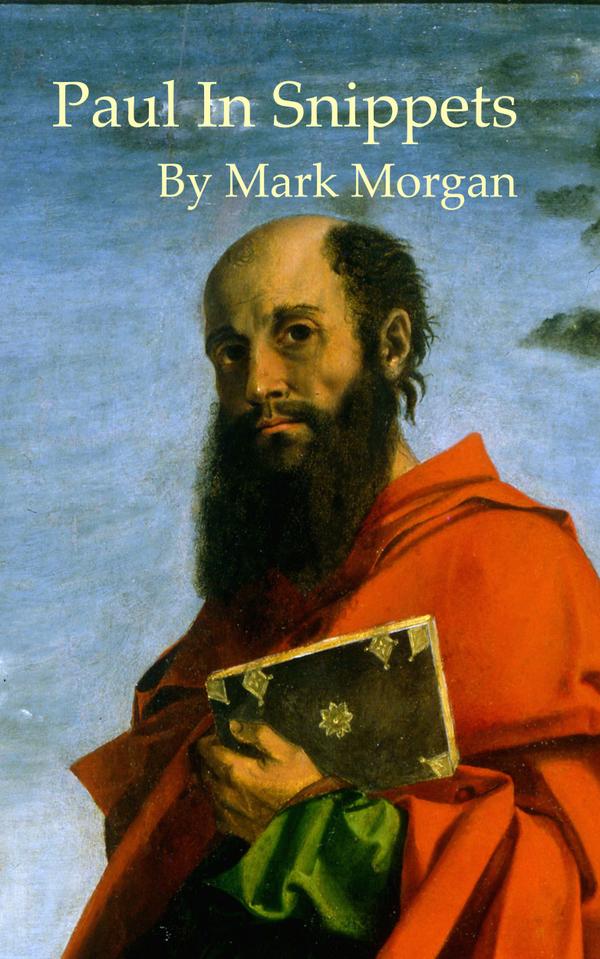Festus was seated in the judgement hall when Paul was led
in by two guards. He was talking to a soldier – a centurion, based on his uniform.
“Julius, this is Paul of Tarsus,” said Festus. “You have your orders regarding him and the details of the charges against him – such as they are – for you to present to the emperor.”
“Very well, sir.”
“Paul’s case is unusual. Had he not appealed to Caesar, I would have let him go, because there is no evidence of him having committed any crime. However, the appeal has been made and cannot be reversed.”
“So he is innocent, sir?”
“In a manner of speaking, yes, but that must now be confirmed by the emperor. He must appear
before the emperor and gain his approval. Until then, he is a prisoner.”
“I see. I’ve heard a lot about this man, sir.”
“Good or bad?”
“Good, sir.”
“Well, don’t get led astray by rumours, Julius. Do your
duty.”
“Very well, sir.”
“Saul, or Paul, or whatever your name is,” said Festus, turning to Paul, “Julius here, one of the centurions of the Augustan cohort, will conduct you to Rome. You will be accompanied by a squad of soldiers and some other prisoners. Julius will arrange transportation, leaving as soon as possible. With ordinary sailing
weather and good fortune, you should be able to reach Rome before winter.”
“Thank you,” answered Paul. “I appreciate your promptness in arranging this matter.”
“I don’t like leaving uncondemned men in prison any longer than I can help,” said Festus. “You will leave immediately once Julius has made the necessary arrangements.”
“I have one or two friends here in Caesarea who would like to come with me to Rome,” said Paul. “Could I give them details of the ship?”
“Julius will look after that,” said Festus, generously.
__________________________________
Julius was a diligent worker. Early the next morning, Paul was taken from his cell by a pair of soldiers who signed him out and led him towards the docks. It was exciting to leave the dark stone room that had been his unwelcome home for more than two years. Julius was already at the dock, watching his squad of soldiers herd several other prisoners up the gangplank – men being transferred to Rome for judgement or punishment.
Paul approached Julius immediately, expressing concern about Luke and Aristarchus, who had both expressed a strong wish to travel with him to Rome. Such a sudden and unexpected departure might make them miss the boat.
“Don’t worry,” said Julius, “You gave me their names and where they were living, so I sent them details of the vessel and its departure time. In
fact, they’re already onboard. Look over there at the bow.” The centurion waved his arm in their direction.
Paul’s eyesight wasn’t very good, but when he peered at the front end of the ship, he could just make out Luke standing there with another man close behind him.
“Thanks for your help,” he said, waving to Luke, who immediately waved back and
began to walk towards the gangplank. The other man turned and, seeing Paul, hurried after Luke. Soon Paul could see that it was Aristarchus, smiling and waving. Paul smiled and returned the waves. Aristarchus was an old friend and a great companion.
“Good morning, Paul,” called Luke as he walked down onto the quay, closely followed by Aristarchus. They each gave Paul a hug.
“Greetings in the name of Jesus Christ, brother Paul,” said Aristarchus.
“And congratulations!” said Luke. “You’re out of that prison and on your way to Rome.”
“Rome’s not always the safest place to go,” observed Julius. “And although it sounds as if your case should be pretty simple, Caesar
isn’t always predictable.”
“Jesus told me that I’m to testify about him to Caesar in Rome,” said Paul, “so the sooner we get there, the better!”
“Look, I don’t have time to talk to you about this Jesus now,” said Julius, “but I’d like to hear more sometime soon. In the meantime, come on board. Make sure you stay near these two soldiers. Once we
set sail, you’ll be free to roam the deck.”
Julius hurried away to make final arrangements with the captain while Luke and Aristarchus climbed back on board, followed by Paul and his two guards.
The three friends stood near the bow looking out to sea, thankful for Julius’ kindness and the cooperation of the guards.
“It’s good to be on a boat again,” said Paul, rubbing his hands together.
“And better for your health too, I think,” said Luke. “Spending years in prison isn’t what we’re designed for.”
Paul laughed, “Oh, Luke. You doctors spend too much time thinking about physical health. But I must admit it’s wonderful to be outside
again with the sea wind blowing my hair. Being out on the open sea will be even better.”
“If God wills it, you won’t be out at sea for long,” said Aristarchus. “The captain says we should put in at Sidon tomorrow.”
“That’s good news,” said Paul. “There are believers in Sidon. Perhaps Julius will let me visit them.”
“I wouldn’t hold your breath,” warned Luke. “You know what would happen to him if you escaped, so he’s not likely to give you the chance.”
“I’ve already told him that I have to travel to Rome.”
“I’m sure plenty of prisoners have told him plenty of things, but he won’t want to risk his life by relying
on your word.”
“How can I convince him to trust me, then?”
“You might have to hope that he’ll let Aristarchus and me go ashore and bring the believers to meet you on the ship. Julius may be willing to take that risk.”
It wasn’t long before they were ready to sail. The ropes were cast
off and the crew eased the ship away from the quay. Sails were quickly hoisted and the ship slowly but steadily left Caesarea behind. Paul stood at the bow, leaning on the rail and breathing in the sea air. As he exchanged hopes and ideas with Luke and Aristarchus, he couldn’t keep a smile off his face for long, and his laughter burst out frequently.
Memories of two years of imprisonment were left behind as the
ship cut through the gentle waves. Paul was looking forward again, eager to meet the believers in Sidon.
__________________________________
After a calm night of slow sailing, they put in at Sidon the following day. Paul didn’t even need to ask Julius for the opportunity to visit the believers there: Julius offered it.
“Now that’s faith, isn’t it?” marvelled Luke when Paul told him the good news. “He’s probably risking his life for you.”
“If you left the ship and never came back, he’d lose his job at a minimum, and there’s a good chance he’d be executed,” agreed Aristarchus.
“It’s an honour to be trusted like that,” said Paul, “and I’m not yet
sure why he’d do it. I hope to have an opportunity to talk to him about it. People who can have such faith in people they’ve never met have something special. It reminds me of the centurion who went to Jesus asking him to cure his servant, and of Cornelius, the centurion who sent for Peter and was so sure that Peter would come and tell them some vital truth that he gathered his friends and relatives to meet him.”
“Inspiring, isn’t it?” said Luke. “Shall we go and find the believers now? I hope they’re not too busy today.”
Aristarchus had never visited Sidon before, so Paul and Luke led the way to the home of one of the elders they knew. By the grace of God, he was at home and full of joy to see them. “Greetings, my beloved brothers – and Paul in particular. We’ve all been praying for
your freedom, but I never expected to hear the news by meeting you at my door! Come in. We’ll send messages around to gather all the believers who are available. How long can you stay?”
“Only a few hours,” said Paul. “We leave this afternoon, after the sailors have finished loading the new cargo. Then it’s on to Rome, so that I can testify to the truth before the emperor!” Excitement shone in
Paul’s eyes, and Luke marvelled at how quickly the frustration of two years’ imprisonment had been replaced by an eagerness to preach once more.



